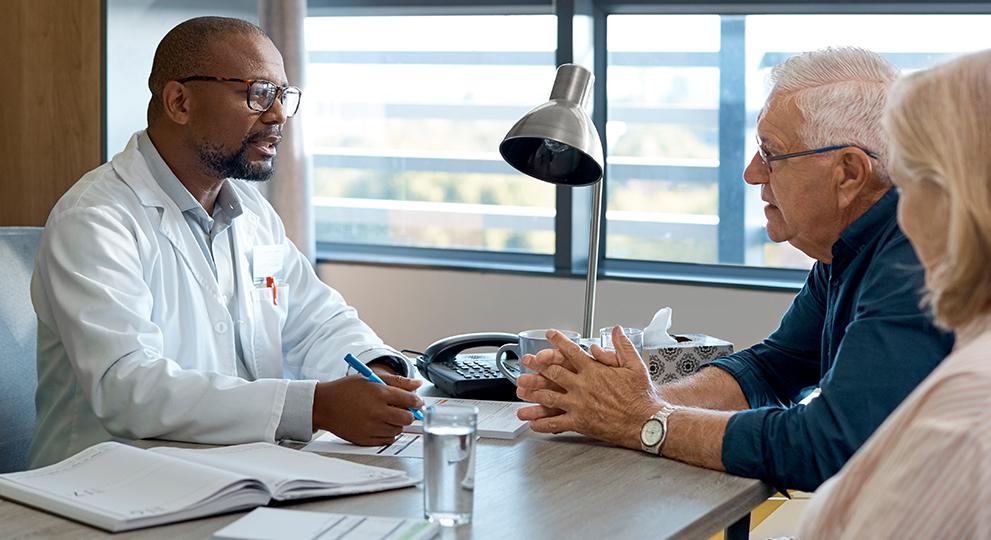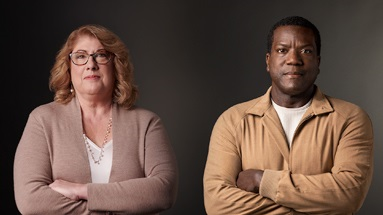Nutrition help from your medical team
Nutrition help from your medical team

People with cancer can experience nutrition-related problems during cancer treatment
These problems may include decreased appetite, mouth sores or digestive issues, such as nausea or diarrhea. It can be challenging to eat enough to stay strong during cancer treatment. Your medical team can provide you with options so that you can eat enough calories, protein and other nutrients.
Talk to your medical team about nutrition
It is important to talk with your medical team about nutrition regularly. They can tell you what nutrition problems you may experience during your cancer treatment. This will help you know when to tell your oncologist about issues, such as difficulty eating or weight loss. If your symptoms are not improving, he or she may adjust your medication to help you feel better.
It is also important to discuss with your medical team any changes to your diet and any over-the-counter vitamin, mineral or herbal supplements you may be taking. They will make sure that your diet and any supplements you take are safe and healthy for you.
How an oncology dietitian can help you
When it comes to helping you with nutrition, an oncology registered dietitian can be an important member of your healthcare team. A registered dietitian (RD) is a food and nutrition expert who works in a wide variety of healthcare settings.
An oncology registered dietitian can:
- Review your current diet to see if you are eating enough calories and protein to meet your nutritional needs
- Help you plan meals that are healthy and nutritious
- Provide useful suggestions to help manage symptoms of cancer treatment
- Review a food and symptom journal. A food and symptom journal is a record of your current symptoms and the foods you are able to eat. It is helpful to share it with your dietitian to show him or her how you are eating
- Advise you on foods or supplements to avoid. Some foods or supplements can interfere with your medicines. For example, some people do not know that grapefruit can interfere with many medicines, including medicines for cancer
Where to find an oncology dietitian
You can sometimes find an oncology registered dietitian on staff at your cancer center. If there is no oncology registered dietitian, ask your doctor or nurse if he or she has one to recommend in the community. You can also search online through the Academy of Nutrition and Dietetics’ “Find an Expert” feature at eatright.org.
Here is a handy checklist of questions and actions that you can use to make the most of your next appointment with your medical team or oncology dietitian:
|
MY APPOINTMENT CHECKLIST |
|
¨ What symptoms should I expect during my cancer treatment? ¨ Is there anything I can do to help manage my symptoms? |
|
¨ Are there any changes I need to make to my diet to stay healthy during treatment? |
|
¨ Are there any foods or over-the-counter vitamins or supplements that may interfere with my cancer medicines? |
|
¨ Who should I call with a nutrition problem or question? ¨ Is there a registered dietitian available who specializes in oncology? ¨ How often should I meet with a dietitian? |
|
¨ Keep a food and symptom journal and share it with your medical team at each visit. |
|
¨ Write down extra questions when you think of them, so that you can get all of the answers you need during your next visit. |
This article has general information and is not meant to replace nutritional or health guidance that is specific to any individual. Speak to your healthcare provider before making any changes to your diet or lifestyle. Consult with a registered dietitian if you are on a restricted or modified diet.
















